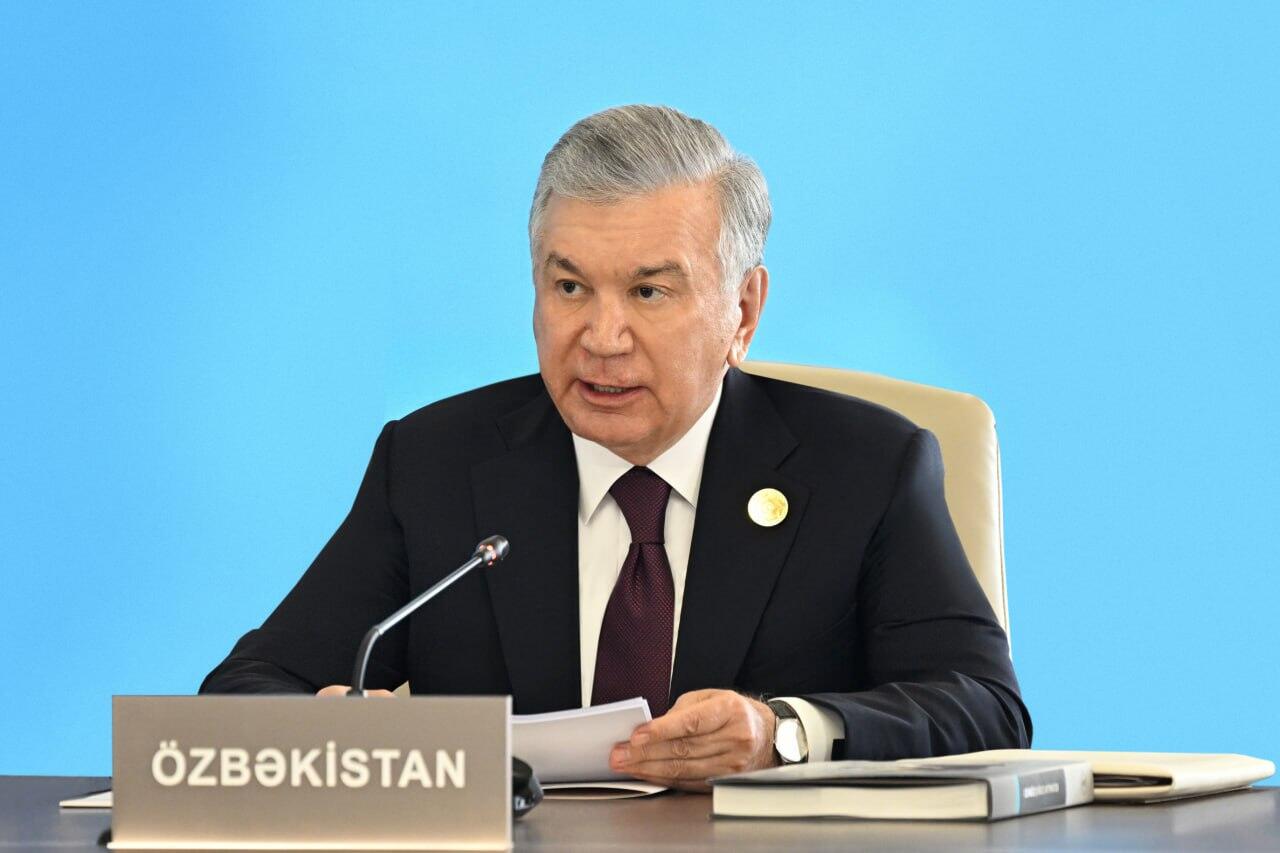President Mirziyoyev advances Uzbekistan’s logistics vision for OTS states through new railway corridors
8 Oktyabr 11:41 EnThe 12th summit of the Organization of Turkic States (OTS), held in Gabala on October 6-7 under the theme "Regional Peace and Security," highlighted Uzbekistanchr("39")s growing influence within the organization and its active role in shaping the OTS agenda across strategic areas, Olaylar reports.
Uzbekistan, which joined the OTS in 2019, has quickly positioned itself as a driving force behind projects in the fields of economy, logistics, and transportation. Every summit attended by President Shavkat Mirziyoyev is characterized by specific initiatives focused on tangible integration among member states rather than superficial pronouncements.
A central focus of the summit was the development of transport connectivity. Uzbekistanchr("39")s geographical position makes it a natural transit hub linking Central and South Asia, the Caucasus, and the Middle East. The Middle Corridor, connecting China, Kyrgyzstan, Uzbekistan, Turkmenistan, and extending to Europe, is increasingly becoming a key regional route.
According to assessments by the World Bank and the Asian Development Bank, cargo traffic along the Middle Corridor could reach 10-11 million tons per year by 2030, a significant increase amid global changes that have reduced the reliability of northern routes.
"In the case of connecting the Middle Corridor with the under-construction China-Kyrgyzstan-Uzbekistan railway and the prospective Trans-Afghan Corridor, a multi-sectoral strategic network of main routes will be created in our region," President Mirziyoyev emphasized.
The new China-Kyrgyzstan-Uzbekistan railway will shorten transport distance by approximately 900 kilometers and reduce delivery time by 7-8 days, bringing substantial economic benefits to all participants. Meanwhile, the Uzbekistan-Turkmenistan-Iran-Türkiye corridor is also being developed, with simplified border procedures and significantly reduced delivery times. These initiatives enhance logistical efficiency, increase transit revenues, and strengthen Uzbekistanchr("39")s position as a key transport hub.
President Mirziyoyev highlighted the need to ensure the Middle Corridorchr("39")s competitiveness and to create favorable conditions for business. He noted that "optimal transit tariffs, the development of modern transport infrastructure, and the introduction of digital customs procedures will accelerate cargo movement and boost trade efficiency."
He added that all these transport and logistics initiatives would be further discussed at the International Forum on Multimodal Transport, to be held in Tashkent on November 12, which will provide a platform for experience exchange and the development of concrete solutions for corridor advancement.
Beyond the transport sector, Uzbekistan continues to promote broader economic initiatives. The country has proposed establishing a Space of New Economic Opportunities and a Permanent Council for Economic Partnership under the OTS, headquartered in Tashkent. Among key priorities are creating an industrial alliance, implementing green corridors, and advancing hydrogen and ammonia projects, steps aimed at expanding industrial cooperation, mutual investment, and business growth.
Food security is still front and center on the to-do list. The establishment of an expert working group to promote organic products under a unified OTS brand will help member countries enter global markets and strengthen research cooperation. "In the future, our organic products could enter the world market under a single brand," the president said.
Uzbekistan is equally prioritizing science, education, and ecology. In 2025-2026, the country will chair the Union of Turkic Universities, host the "Days of Turkic Science and Innovation," and open the International University of Turkic States, which will foster joint research and nurture talented scientists.
The summit in Gabala showed that Uzbekistan has truly hit the ground running, establishing itself as a key player and a go-getter among the members of the OTS. Through its ambitious transport, economic, and scientific initiatives, the country is consolidating its status as a strategic center of the Turkic world, driving practical cooperation and sustainable regional development.

